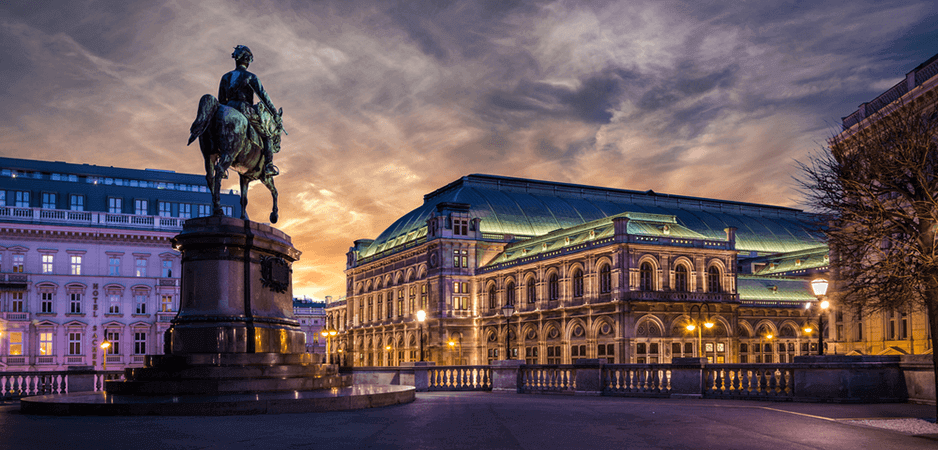When does a civilization in rapid decline stop being a civilization? Answer: when it requires a clash to understand itself.
Egged on by the media and abetted by prominent politicians and intellectuals in Europe and the US, the world stumbles toward an increasingly confused and confusing “clash of civilizations.” Shortly after President George H.W. Bush’s proclaimed a “new world order,” Samuel Huntington famously published a book with the title The Clash of Civilizations and the Remaking of World Order (1996). In it he predicted an imminent and possibly decisive clash between two existing “civilizations”: the West and Islam. In 2001, that clash became a military reality that has been festering inconclusively ever since.
Generations of Europeans (and especially Austrians) have viewed the Battle of Vienna in 1683 as a turning point, the moment when the West pushed back the Muslim invaders, securing Europe for (Christian) Europeans alone. This simplistic idea has not only persisted in people’s minds, but feeds the current trend toward populism in Europe, including the idea that Europeans must protect the integrity of their culture by rejecting Muslim immigration.
History is of course more complicated than the version taught in middle school and spread by the media. In a recent article in Aeon, Norwegian historian Dag Herbjørnsrud sets the record straight on who was clashing (and collaborating) with whom at the Battle of Vienna and reveals a few surprises.
Here is today’s 3D definition:
Clash of Civilizations:
A fictional construct regularly promoted in history by self-interested political theorists to misrepresent the intentions of vast groups of people, with a view to persuading the population of their nation or region to align behind the tiny group of “managers of history” to which they belong
Contextual note
The Battle of Vienna carries a distinctive symbolism because Europeans perceive Austria and Hungary as their eastern frontier, separating them from both the Muslims and the Slavs. In 1683, Vienna was saved but Budapest remained part of the Ottoman Empire until 1699. It’s in the lands beyond Hungary that things get messy. Not only are there, to this day, Muslim populations in the Balkans but other fault lines appear, such as the division between Western Christianity (Catholic and Protestant) and the Eastern Orthodox tradition dominant in both the Slavic nations and Greece. Then there is the question of Turks vs. Arabs (race and language), complicated once again by the geographical status of Turkey, a powerful modern nation straddling Europe and Asia.
What emerges is a vague impression shared by a lot of people that European unity and European culture can only be about race, Europe being the land in which “true Europeans” are Caucasians (though, ironically, not from the Caucasus, which is even further east).
When Huntington launched his notion of the clash of civilizations, he was referring to a much larger “West,” led by the United States. In a subsequent book, Who We Are, America’s Great Debate (2005), Huntington examines the famous “melting pot” of the US and identifies the core culture that he insists must be defended. It is essentially WASP (White Anglo-Saxon Protestant). One reviewer called the book “Huntington’s ill-conceived, crotchety and … undocumented jeremiad against Latino immigration,” offering Donald Trump his major campaign theme of a decade later.
 A reviewer in British newspaper The Observer suggested Huntington’s “debate” represents “the self-indulgence of an insecure people.” And though the most vulnerable people in the US are minorities and especially blacks, the “insecure people” are the whites, who apparently no longer know how to identify their culture other than through a conscious or unconscious attitude of white supremacy, which has now become a Western trend with the rise of populism and nationalism.
A reviewer in British newspaper The Observer suggested Huntington’s “debate” represents “the self-indulgence of an insecure people.” And though the most vulnerable people in the US are minorities and especially blacks, the “insecure people” are the whites, who apparently no longer know how to identify their culture other than through a conscious or unconscious attitude of white supremacy, which has now become a Western trend with the rise of populism and nationalism.
Historical note
Europe and the Western world in general have a cultural problem that few politicians accept to address in serious terms. They remain irretrievably confused about how, as nations, they can deal with the idea of multiculturalism. They tend to reduce it to the question of being for or against it, which to a large extent is what was at play in the UK’s Brexit vote.
The irony is that for at least the past 500 hundred years, European nations have cultivated diversity by colonizing much of the globe and claiming control over a wide diversity of peoples. And though they tend to define culture in terms of race, language or religion, the real factor permitting control was something else: rapid technological innovation that took place within a violently competitive political landscape. Before Europeans began colonizing on all five continents, the Chinese had attained the highest level of technical innovation. But not having to compete with other political rivals, the Chinese never deployed the level of hard-nosed aggression that Spain, Portugal, Britain, France and later other European nations practiced across the globe.
In the end we must ask ourselves what we mean by “civilization.” Is it the collective work of all people who participate in building it, from top to bottom or bottom to top? Or is it the set of values imposed by an elite and reflected in its visible institutions?
When asked what he thought of Western civilization, Mahatma Gandhi reportedly replied, “I think it would be a good idea.”
*[In the age of Oscar Wilde and Mark Twain, another American wit, the journalist Ambrose Bierce, produced a series of satirical definitions of commonly used terms, throwing light on their hidden meanings in real discourse. Bierce eventually collected and published them as a book, The Devil’s Dictionary, in 1911. We have shamelessly appropriated his title in the interest of continuing his wholesome pedagogical effort to enlighten generations of readers of the news.]
The views expressed in this article are the author’s own and do not necessarily reflect Fair Observer’s editorial policy.
Photo Credit: Guniva / Shutterstock.com
Support Fair Observer
We rely on your support for our independence, diversity and quality.
For more than 10 years, Fair Observer has been free, fair and independent. No billionaire owns us, no advertisers control us. We are a reader-supported nonprofit. Unlike many other publications, we keep our content free for readers regardless of where they live or whether they can afford to pay. We have no paywalls and no ads.
In the post-truth era of fake news, echo chambers and filter bubbles, we publish a plurality of perspectives from around the world. Anyone can publish with us, but everyone goes through a rigorous editorial process. So, you get fact-checked, well-reasoned content instead of noise.
We publish 2,500+ voices from 90+ countries. We also conduct education and training programs
on subjects ranging from digital media and journalism to writing and critical thinking. This
doesn’t come cheap. Servers, editors, trainers and web developers cost
money.
Please consider supporting us on a regular basis as a recurring donor or a
sustaining member.
Will you support FO’s journalism?
We rely on your support for our independence, diversity and quality.






